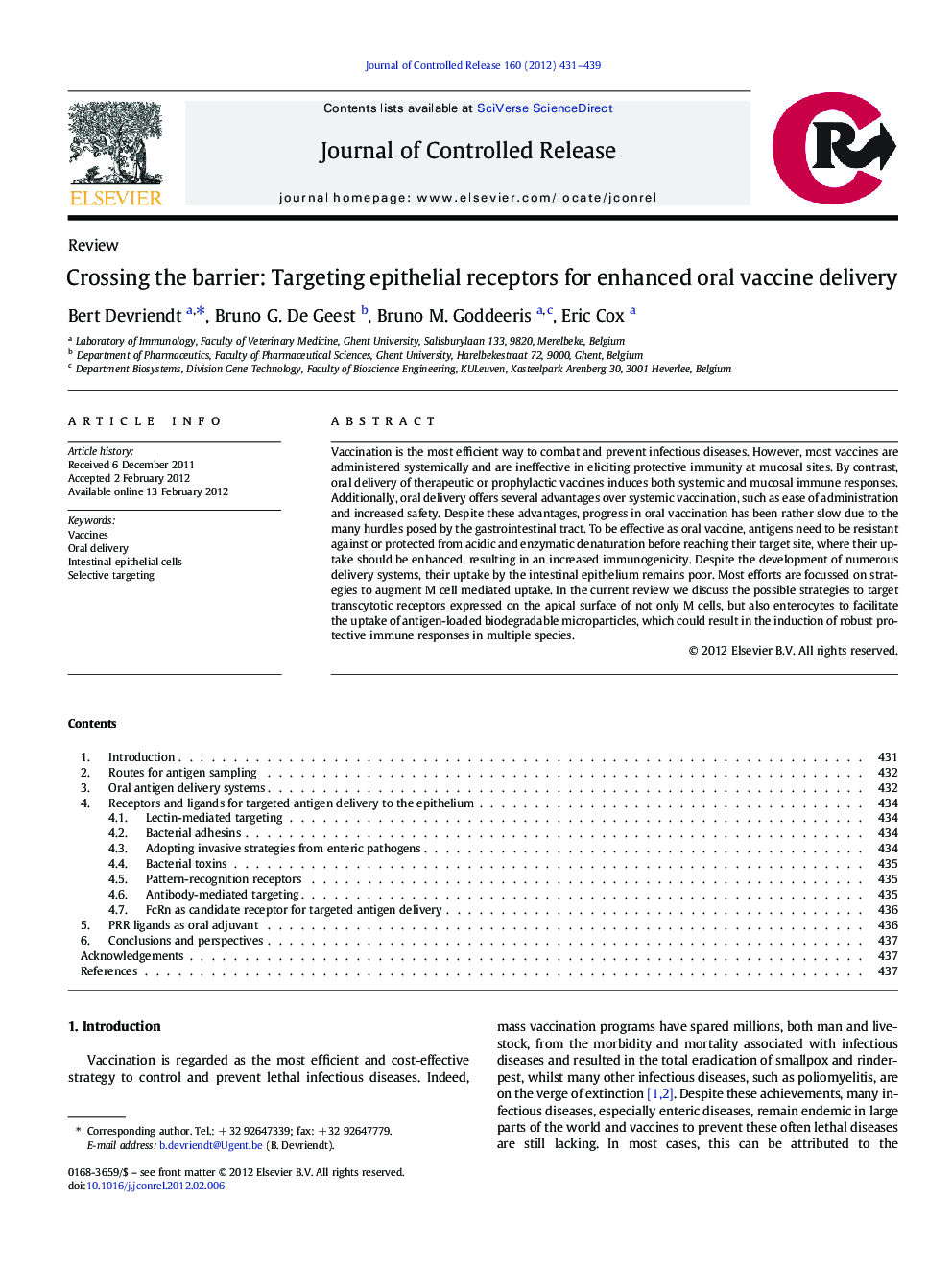| Article ID | Journal | Published Year | Pages | File Type |
|---|---|---|---|---|
| 1424490 | Journal of Controlled Release | 2012 | 9 Pages |
Vaccination is the most efficient way to combat and prevent infectious diseases. However, most vaccines are administered systemically and are ineffective in eliciting protective immunity at mucosal sites. By contrast, oral delivery of therapeutic or prophylactic vaccines induces both systemic and mucosal immune responses. Additionally, oral delivery offers several advantages over systemic vaccination, such as ease of administration and increased safety. Despite these advantages, progress in oral vaccination has been rather slow due to the many hurdles posed by the gastrointestinal tract. To be effective as oral vaccine, antigens need to be resistant against or protected from acidic and enzymatic denaturation before reaching their target site, where their uptake should be enhanced, resulting in an increased immunogenicity. Despite the development of numerous delivery systems, their uptake by the intestinal epithelium remains poor. Most efforts are focussed on strategies to augment M cell mediated uptake. In the current review we discuss the possible strategies to target transcytotic receptors expressed on the apical surface of not only M cells, but also enterocytes to facilitate the uptake of antigen-loaded biodegradable microparticles, which could result in the induction of robust protective immune responses in multiple species.
Graphical abstractFigure optionsDownload full-size imageDownload high-quality image (87 K)Download as PowerPoint slide
